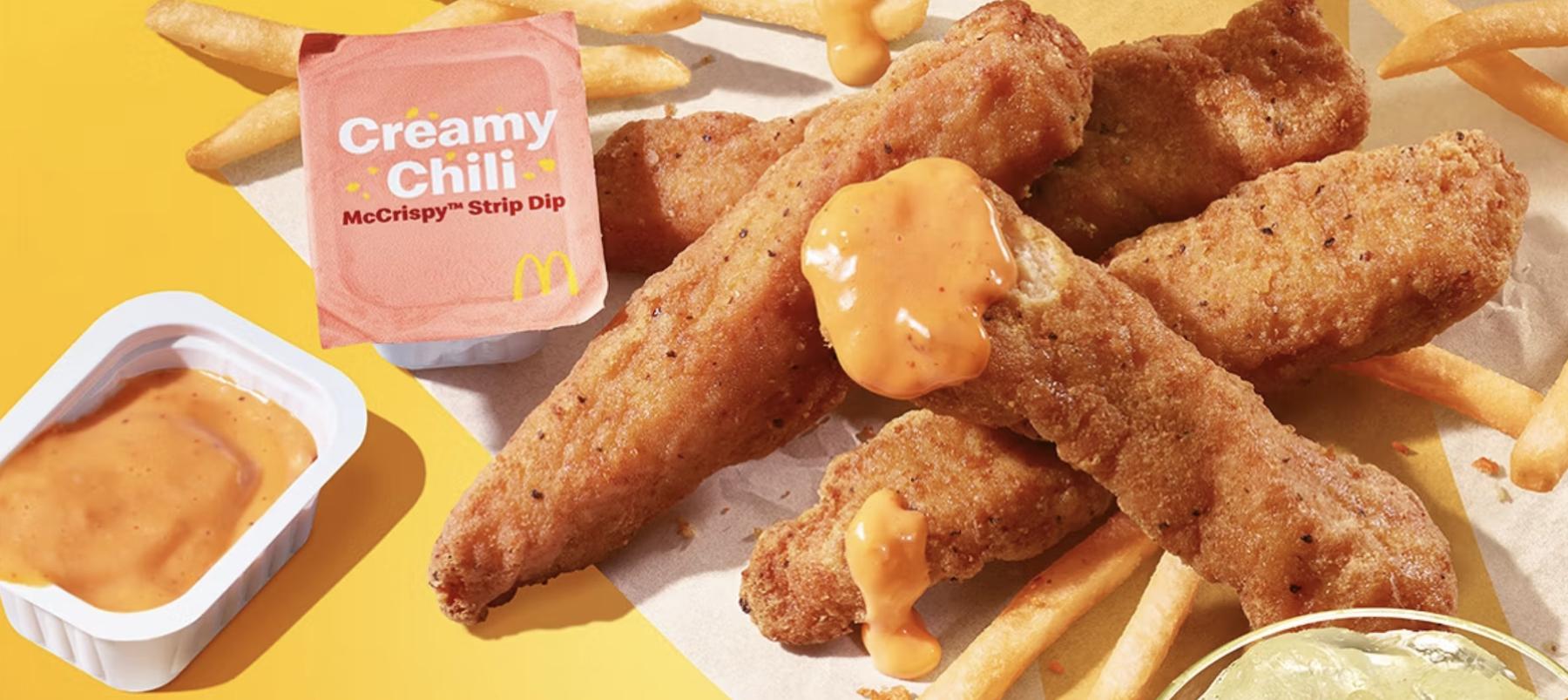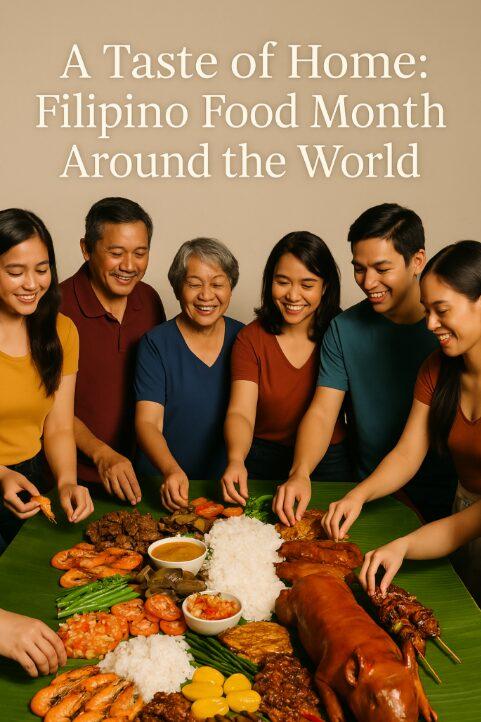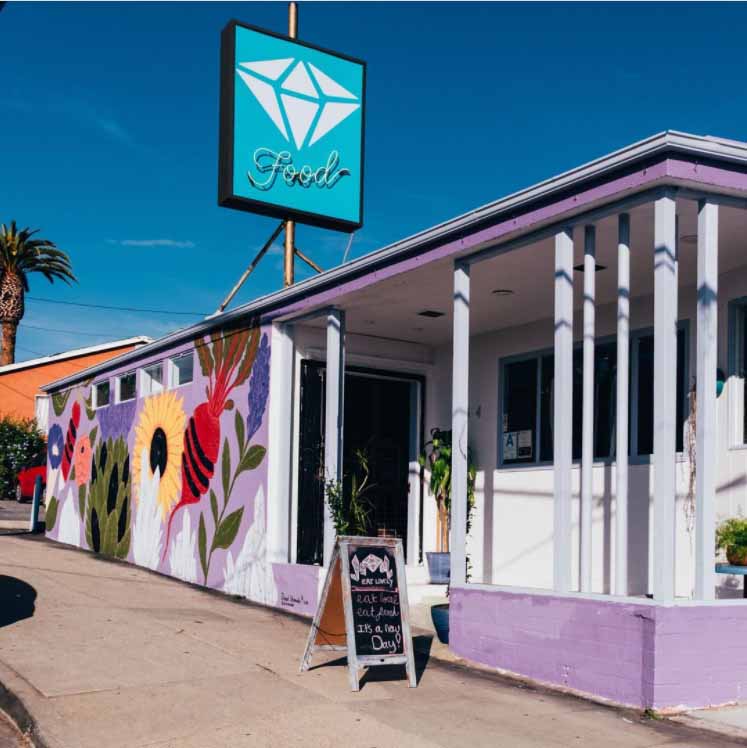
Coconut meat tacos, carrot lox toast, a spicy fried “chicken” sandwich made from tofu — these are some of the standout items at Jewel, a Los Angeles restaurant where vegetables are the main ingredients.
Behind the three-year-old restaurant in the heart of LA’s Virgil Village is Filipina American Sharky McGee, who is welcoming back customers for in-person dining and continuing to serve plant-based dishes that draw from the diverse flavor profiles of the city.
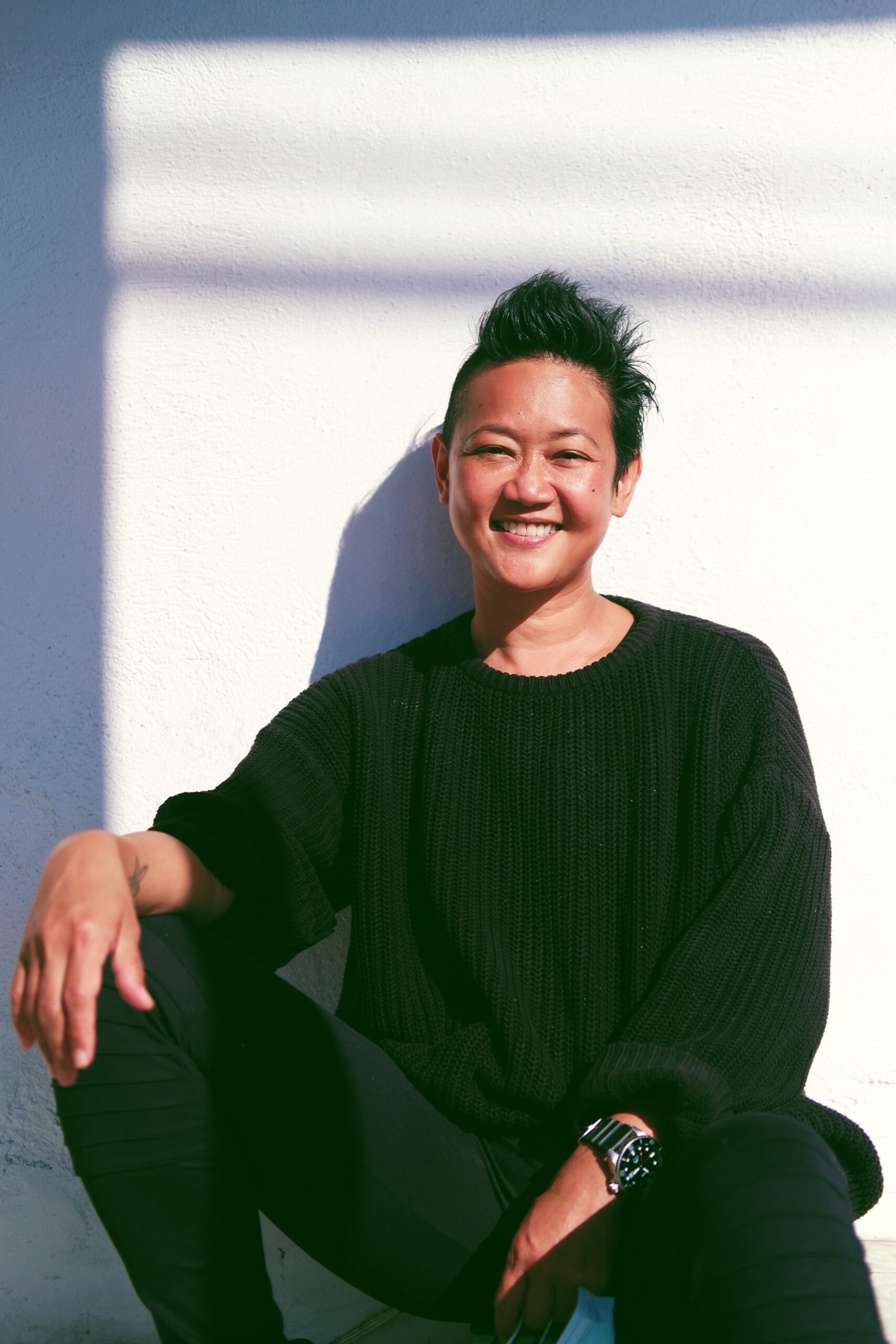
“Jewel is a place where omnivores and vegans — and everyone in between — can find common ground. We just happen to be meat and dairy free,” she said. “Our goal is to ensure that everyone, no matter who they are or what they like to eat, feels welcome and well fed.”
McGee studied hospitality management at the University of Santo Tomas in Manila, and later migrated to the United States in 2000 and made her rounds at various hotels in Atlanta before settling in New York.
“I’ve always been in the restaurant industry since I graduated college and moved to the U.S.,” McGee said. “I moved my way through the industry from Atlanta and then New York and worked at larger scale restaurants.”
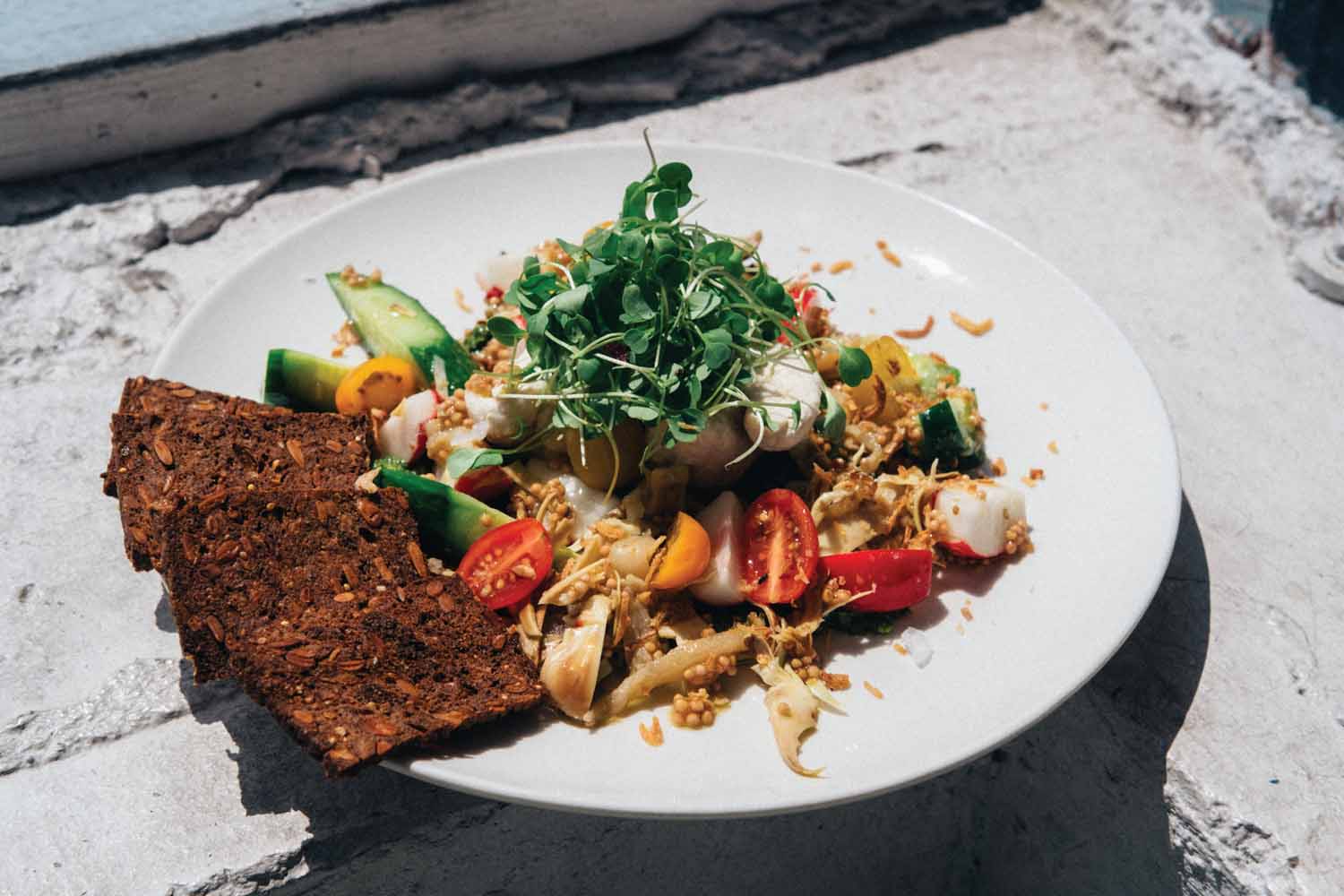
She’s managed iconic restaurants in the Big Apple from French restaurant Pastis to Spice Market, which was under Jean-George Culinary Concepts.
In 2016, McGee moved to Los Angeles, first working at Gjelina in Venice before opening Jewel with her then-partner Jasmine Shimoda two years later.
“We had always talked about opening own our place, with my ex more on the culinary side and me on the front side of the restaurant industry. I was like, ‘Let’s take a chance.’ This opportunity would never have happened if we stayed in New York,” she said.
In a recent interview with the Asian Journal, the Pinay restaurateur speaks about emerging from the pandemic and what’s next for Jewel.
Asian Journal (AJ): What was the motivation behind opening a plant-based restaurant?
Sharky McGee (SM): Before meeting [Jasmine], my diet was very meat-based in New York, but upon meeting her, both of our diets kind of geared towards more plant-based. Working in restaurants, it’s hard but as much as possible, we would tend to lean towards that lifestyle. Upon moving to LA, we found it a challenge to find restaurants where we could find meals that we would like to eat and that’s why we primarily decided to stick to a plant-based concept. At the beginning of Jewel, while the menu was mostly plant-based, we decided to offer fish as an add on. But we found that no one ordered the fish so it would spoil. People didn’t really feel the need to add more protein or any other meat based product to their meals.
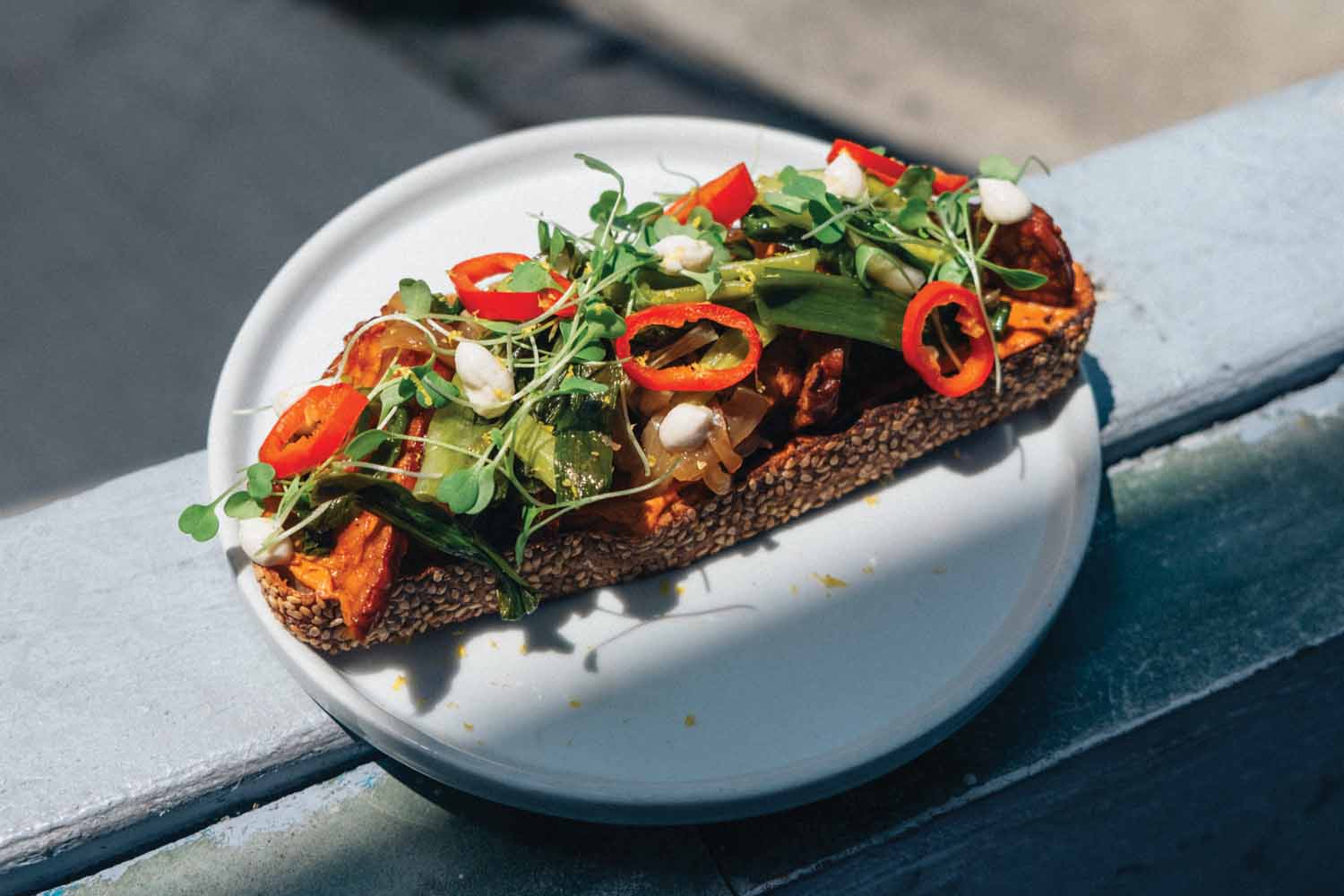
AJ: How are you making this type of eating approachable?
SM: There are certain menu items that are priced a certain way to encourage people to be able to afford, but also to just eat this way. I think a lot of people have an impression that a plant-based or vegan diet is expensive and exclusive, but it doesn’t have to be.
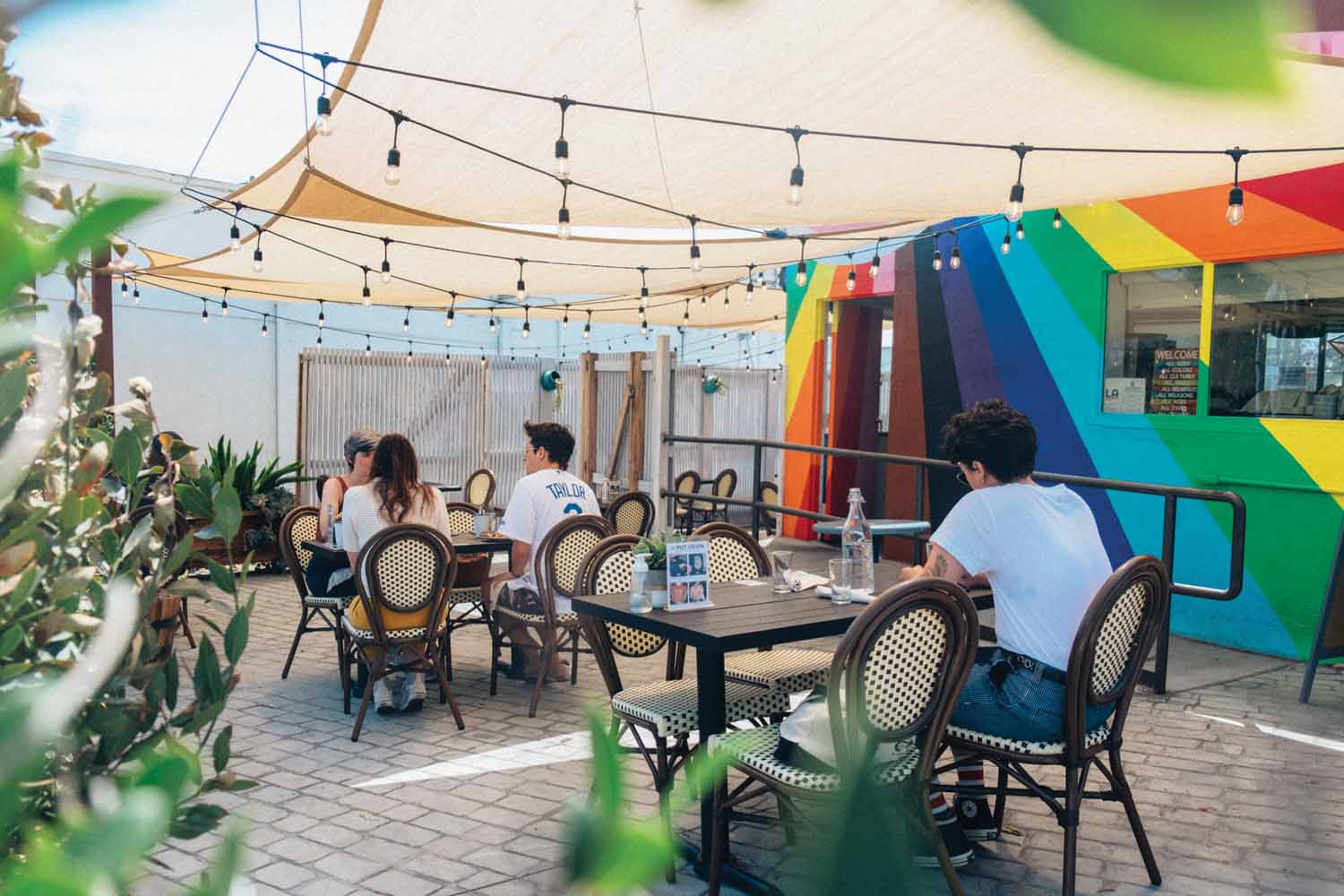
AJ: As a restaurant owner, how was it weathering the pandemic?
SM: It was definitely an experience. When the directive [to close indoor dining], we had sent out an email to all our staff basically laying them off as we were then trying to figure out what is needed from us and what we can realistically do. For the first week, it was just the two of us and I had to learn to cook, and we had to prepare all the to-go orders and everything in the kitchen. It was hard because there were days when the sales were like $200 and you have rent, bills and business credit card debt to pay. Closing the doors for me was not an option. No one really knew what the future was — there was nothing except the determination to just survive.
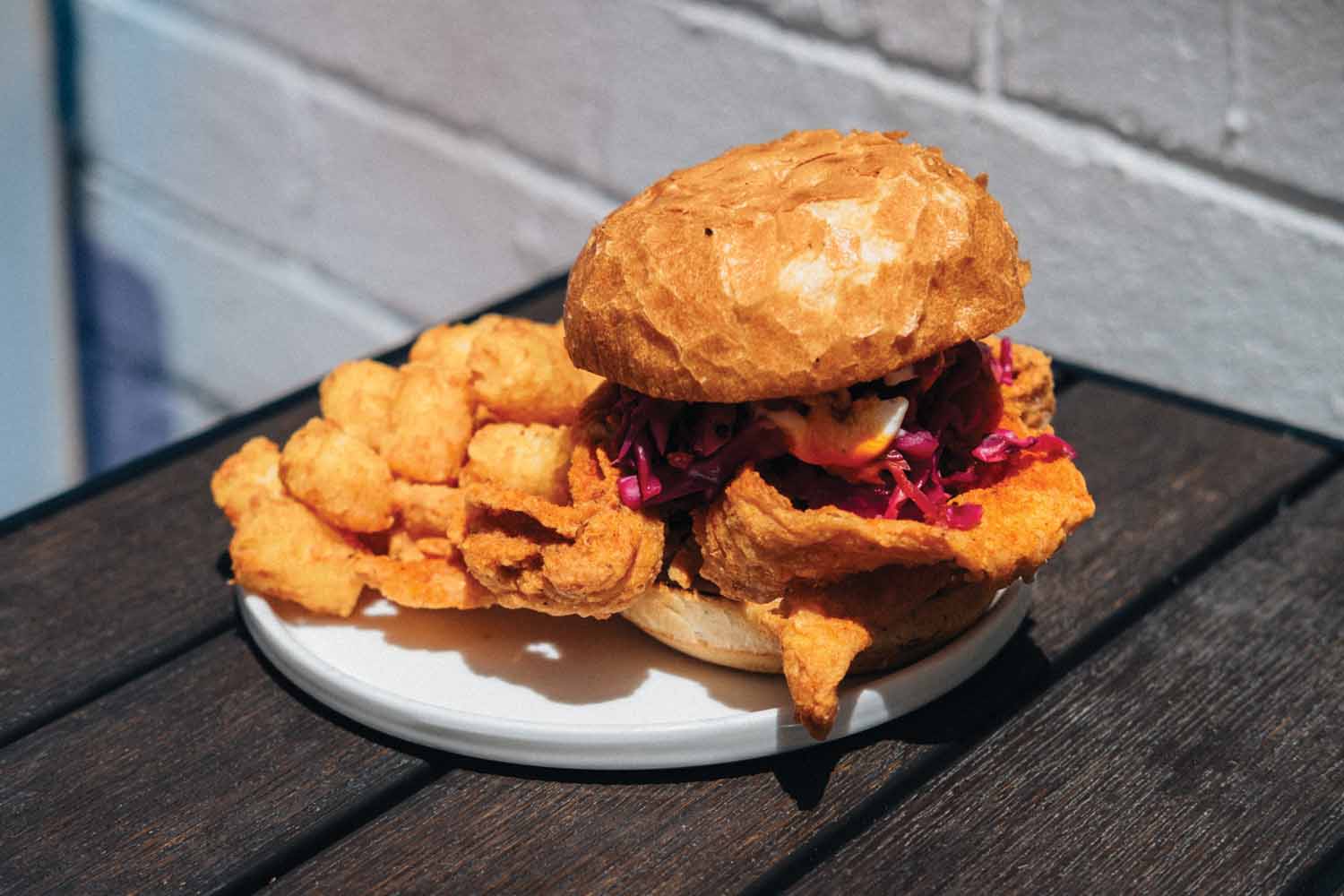
AJ: We’ve interviewed couples who have worked and started businesses together. How was your experience?
SM: It was definitely challenging because it was our first time working together even though we both came from the bigger restaurants in New York City. I can speak for myself and my experience did not prepare me for how to run my own business. I was coming from larger scale restaurants where you have an HR department, accounting department, maintenance. As two queer women of color, we had nothing. It was very stressful and it definitely played its part in how our relationship ended up. I wouldn’t say it was the whole reason but it definitely did, especially with the pandemic.
AJ: What can customers expect from Jewel in the coming months?
SM: Dinner, soon, hopefully. We’re also opening an hour earlier at 9 a.m. We’ve also started hosting Makers Market in the parking lot, which is an artisan market once a month for independent small artists to have a platform. It’s also nice having the community around us.
AJ: As an immigrant and queer Filipina, how have these identities shaped your work in the restaurant industry and business owner?
SM: Filipinos are known to be one of the most hospitable cultures, in Southeast Asia or even maybe the world. But there’s always that sense of celebration and everyone getting together and gathering around food. In terms of translating my education to my experience, there was that baseline that was provided. From that baseline, I think what I tried to do was build on it because it’s a different client here in the United States.
The theme of this year for me is surrounding yourself with your community. It was the thing that saved Jewel. Jewel doesn’t make the community and the community doesn’t make Jewel — we are Jewel because we’ve evolved with our community and because our community comes as supporters. They form who we are and they instruct us and teach me how to be better. As a queer person of color, we went through a really tough period in 2020 and I think there’s an amazing awareness that’s happening. If we want to be better in this world and if we want to create a different, then we need to act and that’s standing up for your community and hearing each other out.
This interview has been condensed and edited for clarity.





